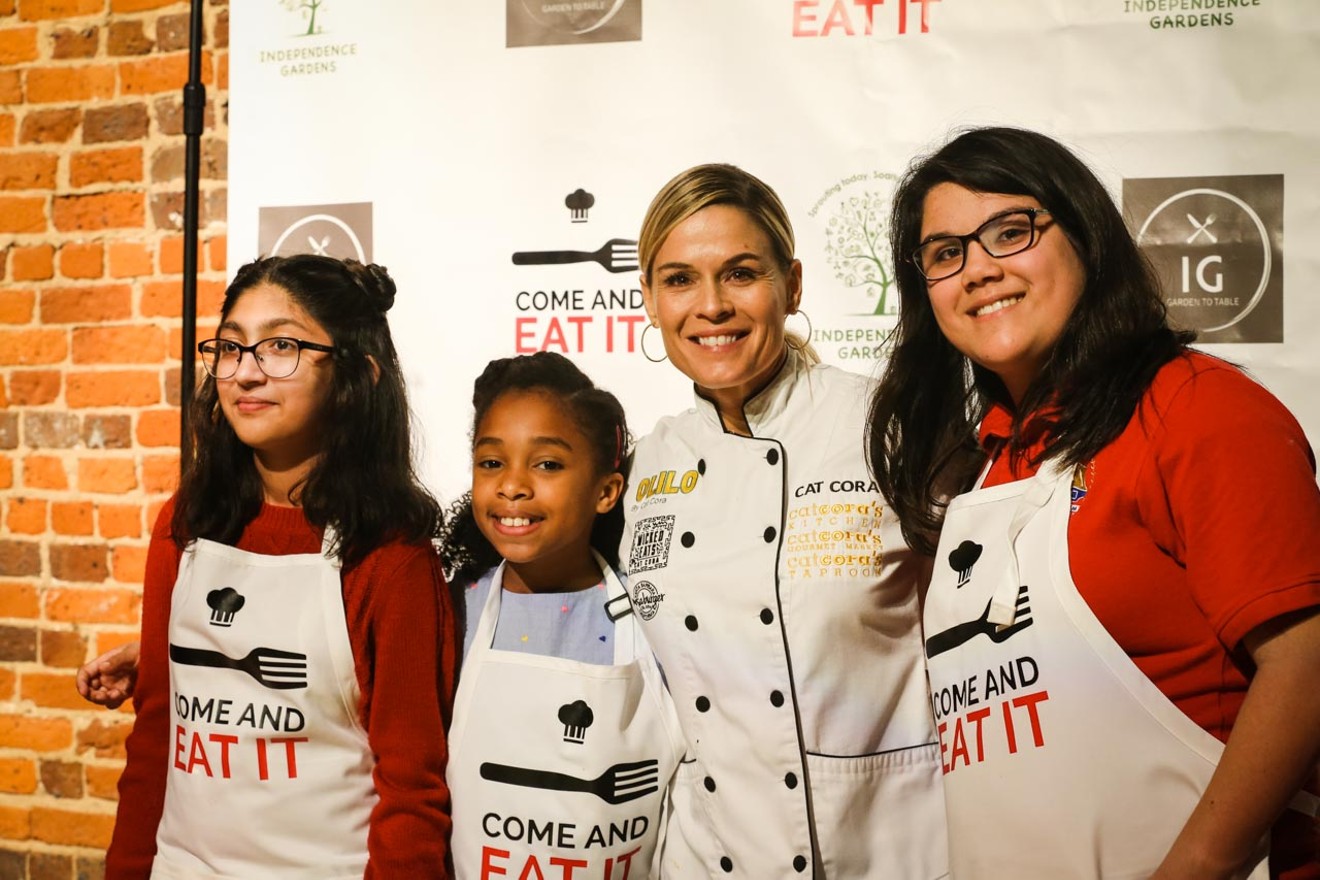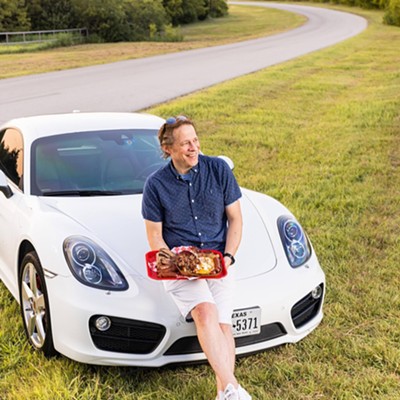The Observer caught up with Cora before the screening to talk about what drove her early successes, how she balances a career and a family, and why she thinks the biggest changes we want to see can start with just one person. Our conversation below is lightly edited for clarity and grammar.
One of the things you mentioned in A Fine Line was how many times you were shot down coming out of culinary school. What really drove you to push through that, and what do you think is your secret that would help to empower other women?
I've really found ways when I face a challenge like that, either a fear of rejection or having doors shut or you know, for instance, going to France and having eight different three-star Michelin chefs saying we don't allow women in our kitchen. But then, you have two that said, “yes, come,” and I went and worked for two legendary three-star Michelin chefs in Roger Vergé and Georges Blanc. I think that having those challenges, having gone through them, or around them, it's really about knowing your worth. It’s knowing that you know you have a dream and that you're laser-focused on that dream.
So bouncing back is key?
Sometimes you take a step back when you get down. You kind of have to brush yourself off a little bit and refocus. I think that it's really about staying very focused on what it is that you’re passionate about and what your dream is. And I think I've got a lot of that from my mom and my parents both. You know, I’m self-made. I came from Mississippi; we didn’t come from a lot of money. Everything I've done has really been from grit and determination. Having a dream and a goal, I think that when you have that, there's just a fire in your belly and you really want to go for it. And I think that you’ll face challenges, but I think that it's really not about the challenge you face. It's how you pick yourself up and go forward.

Independence Gardens founder Chonnie Richey (left) with chefs Cat Cora, Tiffany Derry, Uno Immanivong, Casey Nicole, Sara Bintrim, Jennifer Basel and Yasmin Wages
Chris Wolfgang
I think that’s really a key. When I was just an aspiring chef, I was able to meet Julia Child at a book signing in Natchez, Mississippi, of all places. And she took a minute, it wasn’t rush-rush. She didn't brush me off. She saw my passion, and she took time with me. That stuck with me for years and gave me this energy to say, “Yeah, I'm going to go after it.”
The one thing Julia told me was always pay it forward. That was the last thing that I heard from her, “Cat, always pay it forward.” So I started an apprentice program for young aspiring female chefs, when they come to Santa Barbara. They spend a week with the front of the house and back of the house of my restaurants. They spend a day or two working with [Cora’s wife] Nicole and me on entrepreneurship and running a business. It’s very, very inspiring, and I really wanted to give back in that way because it does just take one person to believe in you, to give you that motivation and inspiration to go for it.
That leads right into my next question, because I wanted to ask about this internship program, and how it works with your charity.
The internship is just one way we do it, but yeah, we built Chefs for Humanity 15 years ago. My charity has kind of a threefold mission. It started out as an emergency feeding relief ...
That was right after the [Indonesia] tsunami, right?
Yeah, we responded to the tsunami, then the earthquake happened in Haiti and then we had Hurricane Katrina, and other crises around the world and our own country. But then we have nutrition education. When there's not a crisis happening that we need to respond to, we're all about nutrition education here in America, because we have a hunger problem right here on our doorstep. And third, we’re aiding hunger relief around the world.
I think that [philanthropy] is something that is very important to me and that we work on every day. It's our mission to go out and help in some way. There's an obligation from someone like myself. When I grew up, my parents were both big givers and big in charity work, and they gave me that value. I'd always help other people, and we're in the hospitality industry; the root of that is serving other people. I think that, through my charity, we’re able to do so much, not only right here in our own country, but also some global work as well.
So that seems like an easy tie-in to the work that Independence Gardens does here, educating children on not only where their food comes from but the importance of nutrition and healthy eating.
It so drove me here. I'm so proud that Aramark, who's one of our big partners, is sponsoring this. It was a no-brainer for me. This program, this nonprofit, parent-led organization, is teaching kids about the love of food and nutrition. Health and wellness is my platform, and I really love giving these kids life skills and self-esteem and leadership in helping their community.
Our hope is that these kinds of groups spread all over and just develop in small pockets all over the country. It's so great for kids and, again it's so good for them and their confidence level and they go out and then they pay it back. So we're building a whole new generation of kids that are giving back as well.
One of the other things the movie talked about is around the bigger question of, especially for women, finding a work-life balance. You're a chef, an entrepreneur, a philanthropist, a TV host, an author, and you're a mom —
Being a mom is the biggest job there is!
So how do you make all that work?
I think it takes a village. Nicole and I know it takes some amazing family support and friends support. I mean you really do have to have an orbit around you that really is healthy, and you're all working together to support each other. And you can't do it by yourself. There's no way that I can do it by myself, and I don't even begin to doubt that. I know that I need everybody. I need my wife, I need our kids who give so much love back to us and we give to them and our friends. We have such an amazing family; we’re here with our grandmother who is 95, the kids, they’re all here in Dallas with us. I mean, it just takes a village. But you have to nurture that relationship, you have to nurture them just like they nurture you.

Filmmaker Joanna James (left) moderates a panel with Cat Cora and a selection of DFW's most talented female chefs after the screening of James' documentary A Fine Line.
Chris Wolfgang
I think we have to do exactly what we're doing with these types of things like this event tonight. We have to open the conversation. Start early. That's really one big one, starting early like we're doing with our six boys. I mean, we're teaching them to be good men out in the world. We’re teaching them about equality. We're teaching them about food, nutrition and health. But also, non-judgment, and the importance of giving back.
It doesn't matter where you're from or what walk of life you're from. We're all just people right now. I think tolerance and acceptance is the No. 1 thing. I think where we can do that, we can open so many doors and start so much of the conversation. And I think just these types of events like A Fine Line starts a dialogue. It starts a conversation that changes somebody’s mind. It changes a policy. If you’ve changed one person, that’s what this is all about.












